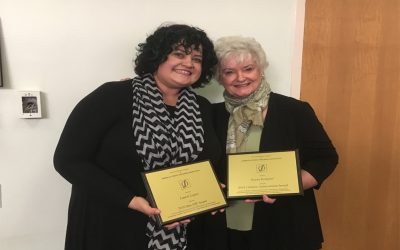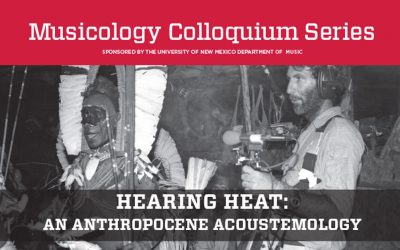Mexican pianist Mauricio Náder, one of the most active and iconic figures on the Latin American music scene today, presents virtuoso pieces by U.S. and Mexican composers, showcasing a vast spectrum of styles, techniques and emotions. He performs regularly at major venues in the United States, Latin America, Europe and Asia, and has given private recitals for former presidents of Mexico, France and Spain. His repertoire, ranging from Baroque to 21st century, includes many pieces written especially for him. He has recorded over 30 CDs as a soloist, member of a chamber music ensemble and vocal accompanist. For more info please visit his website www.mauricionader.net
These concerts are being supported by the UNM Department of Music, UNM Dean’s circle fund, UNM Latin American and Iberian Institute, National Hispanic Cultural Center, Mexican Consulate in Albuquerque, Mexican Education Foundation of New Mexico, and the National Institute of Fine Arts of Mexico.
Lecture-Recital
NOVEMBER 13, 11 am
Keller Hall UNM CFA
NOVEMBER 14, 7:30 PM
Albuquerque Journal Theatre
National Hispanic Cultural Center
PROGRAM
Ricardo Castro (Mexico) / Vals Capricho Op.1
Leonardo Velázquez (Mexico) / Micropiezas
Carlos Chávez (Mexico) / Noche aguafuerte
José Luis Hurtado (Mexico) / Explosive landscape
Gustavo Morales (Mexico) / Rapsodia Mexicana No.1
Henry Cowel (US) / Aeolian harp
George Gershwin (US) / Three preludes
George Antheil (US) / Toccata No.2, Can Can
Morton Gould (US) / Boogie the Woogie, Boogie Woogie Etude
Dr. Kristina Jacobsen releases a new album of co-writes with UNM Music Alumni Meredith Wilder
Dr. Kristina Jacobsen releases a new album of co-writes with UNM Music Alunmi, Meredith Wilder. They will be performing two shows for the CD release of “Elemental.”
Congratulations, Susan Kempter and Laurie Lopez!
Susan Kempter and Laurie Lopez were recognized by the New Mexico chapter of the American String Teachers Association earlier this year.
Hearing Heat: An Anthropocene Acoustemology
Bruno Latour argues that even if poisoned, the anthropocene is a deep gift to human research, inciting new approaches to environmental responsibility. Taking up Latour’s challenge through acoustemology, the study of sound as a way of knowing, this talk engages histories of hearing heat that affectively entangle cicadas and humans in Papua New Guinea, Japan, and Greece.



